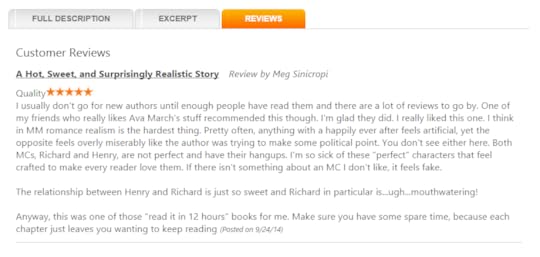Lydia Gastrell's Blog, page 3
February 13, 2015
Path in the Snow
I found this image on Pinterest and now I can't get it out of my mind. I wonder if I can work it in to One Glimpse. Something along the lines of following his path in the snow...


Published on February 13, 2015 16:10
February 12, 2015
40K and Wondering If My Muse in On Vacation
(I write about my writing process mostly as a way to help myself out and understand what I'm doing. It's the blog equivalent of holding imaginary rants in the shower while you wash your hair, lol)
As some of you may know, I am currently working on One Glimpse, the second book in the Indulgence Series (Don't worry. I won't ever reveal spoilers in any of my posts). The hardest part about many novels is, I think, the "setup". How do the main characters know each other? Do they already, or do I have to write a scene where they meet? Are there necessary back stories? Etc. Sometimes, it can feel like I'm building a ballroom brick by brick so the dancers can finally dance. Ugh. But, it's necessary. I've never been a fan of the love-at-first-sight trope mostly because I can't personally see it as realistic. And if I can't buy it, I can't write it.
Now...lust at first sight? I'll definitely buy that as being realistic. ;)
I also had to go back and do some major revisions on the first three chapters, including the creation of new character and a subplot that wasn't there before. I don't usually write in the "puzzle piece" format (writing scenes out of sequence and then putting them together), and in this case I realized that if I didn't add a subplot earlier I was going to have to do just that later. It all relates to the villain and his motivation.
Villains and Motive
I find it difficult to understand, and thereby accept, villains that don't have a realistic motive for their behavior. I realize that there are people in the world who are just jerks, who just want to hurt other people for their own amusement or pleasure, but they are truly rare. Most bad people have some kind of identifiable motive, be it money, power, reputation, revenge, etc. It was as I was writing my villain at the 40K mark that I realized his dislike for Sam (our hero) at that point was too shallow to go much further. I needed to give him more motivation, otherwise the things he will do (which I haven't written yet ;) will seem strange for such a thin, mildly confrontational relationship. Hence the addition of the subplot.
The subplot also helps me to bring other people into the story, as I felt it was becoming a bit too "islandish" with just the two main characters.
As some of you may know, I am currently working on One Glimpse, the second book in the Indulgence Series (Don't worry. I won't ever reveal spoilers in any of my posts). The hardest part about many novels is, I think, the "setup". How do the main characters know each other? Do they already, or do I have to write a scene where they meet? Are there necessary back stories? Etc. Sometimes, it can feel like I'm building a ballroom brick by brick so the dancers can finally dance. Ugh. But, it's necessary. I've never been a fan of the love-at-first-sight trope mostly because I can't personally see it as realistic. And if I can't buy it, I can't write it.
Now...lust at first sight? I'll definitely buy that as being realistic. ;)
I also had to go back and do some major revisions on the first three chapters, including the creation of new character and a subplot that wasn't there before. I don't usually write in the "puzzle piece" format (writing scenes out of sequence and then putting them together), and in this case I realized that if I didn't add a subplot earlier I was going to have to do just that later. It all relates to the villain and his motivation.
Villains and Motive
I find it difficult to understand, and thereby accept, villains that don't have a realistic motive for their behavior. I realize that there are people in the world who are just jerks, who just want to hurt other people for their own amusement or pleasure, but they are truly rare. Most bad people have some kind of identifiable motive, be it money, power, reputation, revenge, etc. It was as I was writing my villain at the 40K mark that I realized his dislike for Sam (our hero) at that point was too shallow to go much further. I needed to give him more motivation, otherwise the things he will do (which I haven't written yet ;) will seem strange for such a thin, mildly confrontational relationship. Hence the addition of the subplot.
The subplot also helps me to bring other people into the story, as I felt it was becoming a bit too "islandish" with just the two main characters.
Published on February 12, 2015 00:10
February 6, 2015
Two Months and Finally Back
After two months of moving, getting settled, and basically coming down from a pretty crap relationship (ironic for a romance writer, isn't it? lol), I can now finally put some effort back into my online doings =)
To Promote One Indulgence, I am running a Rafflecopter giveaway for a...
$25 Amazon Gift Card!Just follow the link HERE and go through the motions. Tweet about the book, write a review on Amazon, or other silliness for multiple chances to win. The contest ends in 2 days. Good luck =)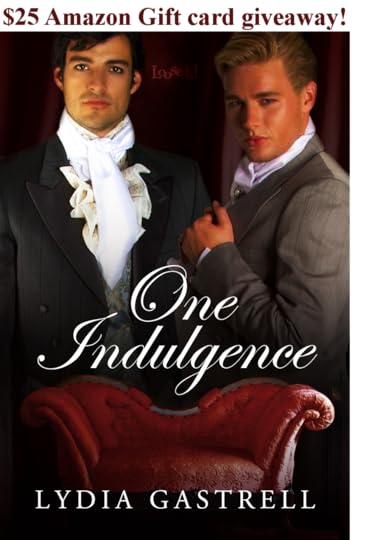
To Promote One Indulgence, I am running a Rafflecopter giveaway for a...
$25 Amazon Gift Card!Just follow the link HERE and go through the motions. Tweet about the book, write a review on Amazon, or other silliness for multiple chances to win. The contest ends in 2 days. Good luck =)

Published on February 06, 2015 18:26
November 8, 2014
Review of One Indulgence: Lisa writing for The Novel Approach. 4 Stars! =)
A New Review for One Indulgence from
 *click banner ^ to navigate to full reviewI want to thank Lisa from The Novel Approach for reviewing One Indulgence and giving it such warm praise, as well as a 4 star rating. The review was not entirely "positive", as some might say, but I disagree. A good author not one wants criticism, but needs it, and I do hope to one day be at least a half-good author, LOL. So I want to thank The Novel Approach for the review, the rating, and the constructive criticism. ~LG
*click banner ^ to navigate to full reviewI want to thank Lisa from The Novel Approach for reviewing One Indulgence and giving it such warm praise, as well as a 4 star rating. The review was not entirely "positive", as some might say, but I disagree. A good author not one wants criticism, but needs it, and I do hope to one day be at least a half-good author, LOL. So I want to thank The Novel Approach for the review, the rating, and the constructive criticism. ~LG
 *click banner ^ to navigate to full reviewI want to thank Lisa from The Novel Approach for reviewing One Indulgence and giving it such warm praise, as well as a 4 star rating. The review was not entirely "positive", as some might say, but I disagree. A good author not one wants criticism, but needs it, and I do hope to one day be at least a half-good author, LOL. So I want to thank The Novel Approach for the review, the rating, and the constructive criticism. ~LG
*click banner ^ to navigate to full reviewI want to thank Lisa from The Novel Approach for reviewing One Indulgence and giving it such warm praise, as well as a 4 star rating. The review was not entirely "positive", as some might say, but I disagree. A good author not one wants criticism, but needs it, and I do hope to one day be at least a half-good author, LOL. So I want to thank The Novel Approach for the review, the rating, and the constructive criticism. ~LG
Published on November 08, 2014 10:13
October 24, 2014
The Blogger Girls...Review of One Indulgence: "...the chemistry between Henry and Richard was spot on."
A New Review of One Indulgence from:

Full Review by Heather C., October 24th, 2014: Click Here[excerpt]"It should have been hard for me to believe that Henry and Richard loved each other after only one night together and with all the mistrust, but somehow the author made me believe it. I’m such a sucker." I want to thank The Blogger Girls and Heather C. in particular for giving my first shot at published writing, One Indulgence, the time of day. I appreciate the honest criticism and can't tell you how happy I am that you liked it. Hope to see more reviews of my stuff--since that will mean I wrote more stuff ;)--from you guys in the future =D. ~ Lydia Gastrell

Full Review by Heather C., October 24th, 2014: Click Here[excerpt]"It should have been hard for me to believe that Henry and Richard loved each other after only one night together and with all the mistrust, but somehow the author made me believe it. I’m such a sucker." I want to thank The Blogger Girls and Heather C. in particular for giving my first shot at published writing, One Indulgence, the time of day. I appreciate the honest criticism and can't tell you how happy I am that you liked it. Hope to see more reviews of my stuff--since that will mean I wrote more stuff ;)--from you guys in the future =D. ~ Lydia Gastrell

Published on October 24, 2014 13:49
October 20, 2014
The Boring Reasons for Using Pseudonyms
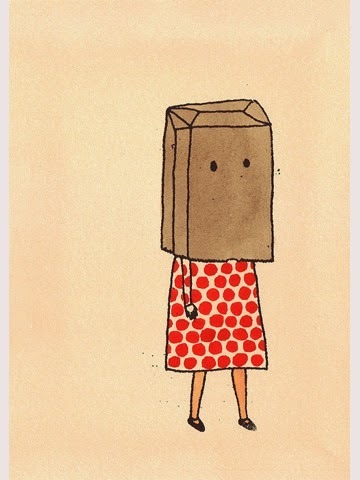 The Boring Reasons For Using Pseudonyms I just finished reading a pretty shocking essay all about the topic of pen names, anonymity, and the importance of being able to separate your online life from your "real life". Why would anyone use a fake name? You hear that question a lot, usually mixed with "I bet they wouldn't write bad reviews if they had to use their real names," or "Who cares about the opinion of a phony, anyway?" We all know there are many reasons people use fake names, and we tend to focus on the most obvious and extravagant reason: protection. We don't want to be stalked or harassed in our real lives. There are crazies out there, people who won't just dislike a book, but who will hate it, who will--for whatever bizarre reason that exists in their heads--take the things they don't like personally. Then there is the flip side of this, the author who just can't stand that you didn't like his book and who decides he is going to argue with you about it, or worse. Self protection is the most important reason people use pseudonyms, to be sure, but there are also other reasons why someone would choose to use a "made up" name online, especially as a writer.
The Boring Reasons For Using Pseudonyms I just finished reading a pretty shocking essay all about the topic of pen names, anonymity, and the importance of being able to separate your online life from your "real life". Why would anyone use a fake name? You hear that question a lot, usually mixed with "I bet they wouldn't write bad reviews if they had to use their real names," or "Who cares about the opinion of a phony, anyway?" We all know there are many reasons people use fake names, and we tend to focus on the most obvious and extravagant reason: protection. We don't want to be stalked or harassed in our real lives. There are crazies out there, people who won't just dislike a book, but who will hate it, who will--for whatever bizarre reason that exists in their heads--take the things they don't like personally. Then there is the flip side of this, the author who just can't stand that you didn't like his book and who decides he is going to argue with you about it, or worse. Self protection is the most important reason people use pseudonyms, to be sure, but there are also other reasons why someone would choose to use a "made up" name online, especially as a writer.1) Politics: Let's face it. Politics are nasty. In this day and age, if you don't agree with someone on every political issue, you are quite likely to be labeled "one of them" and find yourself summarily black-listed. "Oh, you're thinking of reading one of HER books? I heard she supported [fill in the blank]...." A person's politics don't even need to be loud or explicit. It can take as little as an out-of-context screenshot of a Facebook comment somewhere and, before you know it, you're receiving demands to "explain" yourself. Let's not even get into the fact that campaign contributions are a matter of public record. If you know someone's real name and the county in which they live, there are apps that will tell you exactly how much that person donated and to which candidate they donated. Imagine seeing that in a Goodreads review, i.e. "Don't read any of So-and-So's books! She gave money to What's-his-Face!"
This can also take the form of PC harassment (Yes, the so-called tolerant can be very intolerant when they think you aren't being tolerant enough. Say that three times fast). No adult likes to be scolded like a child, pulled aside by the arm and told that they "shouldn't have said that" or, worse, that they "need to apologize." Them's fightin' words.
(From my personal experience, I was once taken to task because a response I had written online featured the third person "him" as a generic substitute for a hypothetical. The alternative is to write "him/her" every time, or to use the singular "one" and end up sounding like Queen Elizabeth. Until English gets a gender-less, third person singular pronoun, we're kind of stuck. In this particular instance, my defense of using the generic "him" got me labeled a--let's see if I can remember--a "patriarchy brainwashed idiot". Yes, that's something I would rather NOT have follow me to my writing career, lol.
2)Common Name: The issue of politics still sort of falls into the realm of protecting yourself, but what about something as simple as having a common name? If you're a writer or any kind of artist who is trying to make a brand of yourself, having a common name can make that nearly impossible. For instance, my real name, including the middle name, is shared by at least sixteen other people with significant online presences, and many more off-line, I'm sure. And several of them are underage. That isn't even that common. Some of us will get dozens of name match hits on Facebook alone (Smith? Gonzalez? Miller?). This is even more of a problem if there is already a published author out there who shares your real name or something close to it. Why go through the hassle of trying to make "a name" for yourself when your name is John Smith? Talk about a futile endeavor.
3) You Hate Your Name: Maybe your parents thought they were being clever when they named you Percival, and even more so when your last name is Merciful. Or maybe it isn't that your name is embarrassing or silly or whatever other hangup you have with it...maybe it's just strange. Guicciardi is a beautiful surname, if you can manage to pronounce it correctly, and spell it correctly, and fit it onto your ebook cover art without making it 10 pt. font. If you haven't noticed, some search engines are VERY unforgiving with spelling errors. "Oh! You can't spell this thing exactly right? Oh, well! Too bad! No book for you!" ~ Sincerely, the search engines on Goodreads and Smashwords. We also should acknowledge that even the most tolerant among us still have those ingrained "reactions" to things that have stereotypes, and names don't escape this. A woman named Candy will struggle to be taken seriously all her life, no matter what. A man named Ezekiel will have to explain that he is not devoutly religious to pretty much everyone until his dying day, because that name just makes people assume that he is.
And sometimes, we just want a name that sounds better. Many actors change their names early in their careers in order to make them more memorable, more flowing. There is, apparently, a science to this. Some name combination just work better to the human ear *See 4) Pre-Established Name: This reason is probably less common, but still happens. In this instance, your real name is already noteworthy for something else and you just don't want to "mix media" so to speak. I know an indie published author of gay romance who is a pretty well known museum curator, with many editor credits for exhibition books very popular in their genre under her belt. It isn't that she is embarrassed or trying to "hide" her fiction writing...it's just that she doesn't want the two very different fields of her work to overlap and cause confusion. There are still people today who are confused every time they pick up a Stephen King novel and it isn't horror. Sometimes, people can only attach one limited reputation to a single name.
So, the whole point of all this is that people need to relax about the fake name issue (hear that, Facebook?). The simple fact is the vast majority of us will never meet or never personally know the people we interact with online, so what difference does it make if we know their real names or not? And even if we do meet them in real life, is it even necessary then? Is the author you geek out over and always wanted to meet any less talented, funny, kind, or anything else just because you STILL don't know what's written on their birth certificates? Get over it! =P
Published on October 20, 2014 14:41
October 14, 2014
Review: His Fair Lady, by Kimberly Gardner
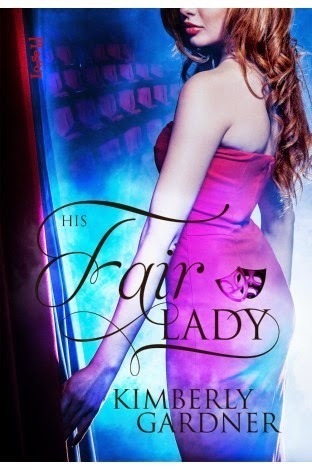 His Fair Lady, by Kimberly Gardner Loose-Id: April, 2014.Blurb, via Goodreads[Mark Talleo is something of a dog with the ladies. Any girl, anytime, anywhere is his motto until he meets Josie Frazier. The long lean redhead not only shares his love of musical theatre, but her smoky sexy voice and infectious laugh drive Mark wild and haunt his every step. Equally fascinating is his sense that she has a secret, one he is determined to uncover on his way to becoming her leading man.
His Fair Lady, by Kimberly Gardner Loose-Id: April, 2014.Blurb, via Goodreads[Mark Talleo is something of a dog with the ladies. Any girl, anytime, anywhere is his motto until he meets Josie Frazier. The long lean redhead not only shares his love of musical theatre, but her smoky sexy voice and infectious laugh drive Mark wild and haunt his every step. Equally fascinating is his sense that she has a secret, one he is determined to uncover on his way to becoming her leading man.Josie does have a secret, one she guards with her whole self. Although she has always known she was female, her name used to be Joey and she's still biologically male. As much as she yearns for love and acceptance, her fear of rejection is just as strong.
Mark's need to know the truth is matched only by Josie's need to hide it. But when malicious gossip reveals her deepest secret the price of honesty may turn out to be too high to pay. But if each can accept that the woman he wants is the woman she is then at last he may find His Fair Lady.]
Review:
 I loved this story. It is a short novel (though not a novella) that moves quickly and is heavy on dialogue. This is the first book I've read featuring a transgender relationship, and even though I have very little to go on by any personal experience, I still came away feeling that it was quite realistic. You could really sense Josie's fear and panic about being "found out" and drawing attention to herself, and I also felt that the reticence of her mother was another good mark of realism. The mother is supportive, but still has that hesitation and the "maybe you should just keep to yourself" mindset about Josie having relationships. Too often in stories like these, authors will make stark divides between those who support and MC and those who do not, ignoring the very real--and far more common--gray area that tends to exist, especially with parents. As to the plot, there is that delicious tension and suspense that comes with the sure knowledge that something bad is going to happen. You don't want it to happen (we love Josie and are rooting for her!), yet the plot driven reader will still appreciate the conflict, =).
I loved this story. It is a short novel (though not a novella) that moves quickly and is heavy on dialogue. This is the first book I've read featuring a transgender relationship, and even though I have very little to go on by any personal experience, I still came away feeling that it was quite realistic. You could really sense Josie's fear and panic about being "found out" and drawing attention to herself, and I also felt that the reticence of her mother was another good mark of realism. The mother is supportive, but still has that hesitation and the "maybe you should just keep to yourself" mindset about Josie having relationships. Too often in stories like these, authors will make stark divides between those who support and MC and those who do not, ignoring the very real--and far more common--gray area that tends to exist, especially with parents. As to the plot, there is that delicious tension and suspense that comes with the sure knowledge that something bad is going to happen. You don't want it to happen (we love Josie and are rooting for her!), yet the plot driven reader will still appreciate the conflict, =). If I have any complaints, it would be that I felt the story lacked detail on the characters. In other words, I would have liked MORE, which is hardly a negative, right? =D Also, I suppose I was a bit frustrated that the subplot was not further explored (I do like it when villains get their comeuppance), but that's just me showing my aggressive side, lol. His Fair Lady is a tense, absorbing story, and I highly recommend it.
~ Lydia Gastrell
His Fair Lady, by Kimberly Gardner is available at:AmazonKoboLoose IdAllRomanceEbooksBarns & Nobleand others....
Published on October 14, 2014 10:39
October 13, 2014
Another Awesome Review of One Indulgence. "Such a wonderful love story."
Published on October 13, 2014 18:49
September 25, 2014
5 Star Review on Loose-Id.com =D
Published on September 25, 2014 15:38
September 23, 2014
Grading Curves: They Don't Belong in High School, and They Don't Belong in Book Reviews
The Curse of Grading Curves:If you rate books by comparing them to others, you're doing it wrong.
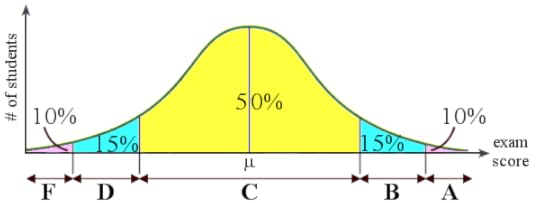
Most people don't realize that just a few decades ago, figure skating judges were allowed to go back and change scores they had already made when they felt that a new skater had preformed better than the one prior. In other words, a better skater came along and "wrecked the grading curve." Suddenly, a performance that had been considered a 6 was now a 5.5, and so on. Judges said things like, "A few years ago I would have given this performance a 6, but that was before [insert awesome skater here] came along." The rules eventually changed, however, and judges were forced to be more technical in their assessments once they were no longer allowed to go back and alter scores. Still, in the world of figure skating, skaters are indeed judged against one another. One skater is better than another, gets a higher score, and that skater wins.
This works for athletics, but does it really work for literature? Can books be assessed according to comparison? If one goes by the star rating systems that dominate almost all online selling and reading forums, you would think the answer is yes.
How many reviews have you read that featured some variation of this statement?: "I would have given this book four stars, but I recently read Such-and-Such and it was awesome, so I had to give this one three stars." Or a better play would be, "I really REALLY loved this book!" followed by a middling three-star rating. Does it make sense for someone to say they really liked a book, to even gush over it, and then give it the rating equivalent of a big "meh"? No, actually, it doesn't. Is this a case of rating books according to some grading curve that exists in the reader's mind? Reading as many reviews as I have over the years, and participating in countless online discussions, I think that it is.
I am guilty of this myself. I went back through my own Goodreads account and noticed that years ago, when I first got online and starting rating books, I was much more generous. I was making it rain with 5-star ratings! And then, I started getting stingy. I started giving books that I had really enjoyed, that I had even gone back and reread, threes or even twos. Why? I think it's because subconsciously, I was beginning to feel like I couldn't give every book a five or a four, no matter how much I liked it. I started to think to myself, "Well, if I gave Such-and-Such a five, is this new book as good as that one was? Can I give it a five too?" By inches, I caught myself comparing books to one another, even books that were radically different from one another in both content and tone.
In short, I had stopped rating the books based on how they made me feel, and had instead started rating them on how I felt they stacked up against one another. It's a good thing I wasn't rating plays, because if you let Mr. Shakespeare wreck the curve, everything by comparison is trash. Right?
No. This is my opinion, true, but I think it's a valid one. It's pointless to rate books by comparing them to one another, by thinking that only the greatest book you've ever read warrants 5 stars, and therefore everything else must get less. Literature doesn't work that way. Literature is not a perfectly executed triple-axle or some other rote move that can be judged because the other writers/skaters are performing the exact same moves. They aren't. This isn't a waltz. It's free-form dancing in a night club!
So, how should books be rated and reviewed? By one measure and one measure only: How they made you feel. That's all. Every person is different and has different standards. For one reader, realism might be a big consideration when it comes to whether or not they liked a story. For another reader, realism isn't very important. The ONLY thing that every reader has in common, the basis from which ever reader can rate a book, is simply whether or not they liked it and enjoyed reading it.
So, you loved The Shawshank Redemption? You thought it was the greatest thing since sliced bread? Awesome! Give it five stars! Did you also like Random Title, by Smashwords Indy Author? You thought it was amazing and you read it all in one 10 hour sitting? Great! Rate it according to those emotions. Don't worry that you gave 5 stars to The Shawshank Redemption. Just because that 'A' student came along and wrote an awesome paper doesn't mean that all the other students are suddenly dumb, suddenly deserving of much less, and it doesn't mean the teacher didn't enjoy reading their papers just as much.

Most people don't realize that just a few decades ago, figure skating judges were allowed to go back and change scores they had already made when they felt that a new skater had preformed better than the one prior. In other words, a better skater came along and "wrecked the grading curve." Suddenly, a performance that had been considered a 6 was now a 5.5, and so on. Judges said things like, "A few years ago I would have given this performance a 6, but that was before [insert awesome skater here] came along." The rules eventually changed, however, and judges were forced to be more technical in their assessments once they were no longer allowed to go back and alter scores. Still, in the world of figure skating, skaters are indeed judged against one another. One skater is better than another, gets a higher score, and that skater wins.
This works for athletics, but does it really work for literature? Can books be assessed according to comparison? If one goes by the star rating systems that dominate almost all online selling and reading forums, you would think the answer is yes.
How many reviews have you read that featured some variation of this statement?: "I would have given this book four stars, but I recently read Such-and-Such and it was awesome, so I had to give this one three stars." Or a better play would be, "I really REALLY loved this book!" followed by a middling three-star rating. Does it make sense for someone to say they really liked a book, to even gush over it, and then give it the rating equivalent of a big "meh"? No, actually, it doesn't. Is this a case of rating books according to some grading curve that exists in the reader's mind? Reading as many reviews as I have over the years, and participating in countless online discussions, I think that it is.
I am guilty of this myself. I went back through my own Goodreads account and noticed that years ago, when I first got online and starting rating books, I was much more generous. I was making it rain with 5-star ratings! And then, I started getting stingy. I started giving books that I had really enjoyed, that I had even gone back and reread, threes or even twos. Why? I think it's because subconsciously, I was beginning to feel like I couldn't give every book a five or a four, no matter how much I liked it. I started to think to myself, "Well, if I gave Such-and-Such a five, is this new book as good as that one was? Can I give it a five too?" By inches, I caught myself comparing books to one another, even books that were radically different from one another in both content and tone.
In short, I had stopped rating the books based on how they made me feel, and had instead started rating them on how I felt they stacked up against one another. It's a good thing I wasn't rating plays, because if you let Mr. Shakespeare wreck the curve, everything by comparison is trash. Right?
No. This is my opinion, true, but I think it's a valid one. It's pointless to rate books by comparing them to one another, by thinking that only the greatest book you've ever read warrants 5 stars, and therefore everything else must get less. Literature doesn't work that way. Literature is not a perfectly executed triple-axle or some other rote move that can be judged because the other writers/skaters are performing the exact same moves. They aren't. This isn't a waltz. It's free-form dancing in a night club!
So, how should books be rated and reviewed? By one measure and one measure only: How they made you feel. That's all. Every person is different and has different standards. For one reader, realism might be a big consideration when it comes to whether or not they liked a story. For another reader, realism isn't very important. The ONLY thing that every reader has in common, the basis from which ever reader can rate a book, is simply whether or not they liked it and enjoyed reading it.
So, you loved The Shawshank Redemption? You thought it was the greatest thing since sliced bread? Awesome! Give it five stars! Did you also like Random Title, by Smashwords Indy Author? You thought it was amazing and you read it all in one 10 hour sitting? Great! Rate it according to those emotions. Don't worry that you gave 5 stars to The Shawshank Redemption. Just because that 'A' student came along and wrote an awesome paper doesn't mean that all the other students are suddenly dumb, suddenly deserving of much less, and it doesn't mean the teacher didn't enjoy reading their papers just as much.
Published on September 23, 2014 21:21


